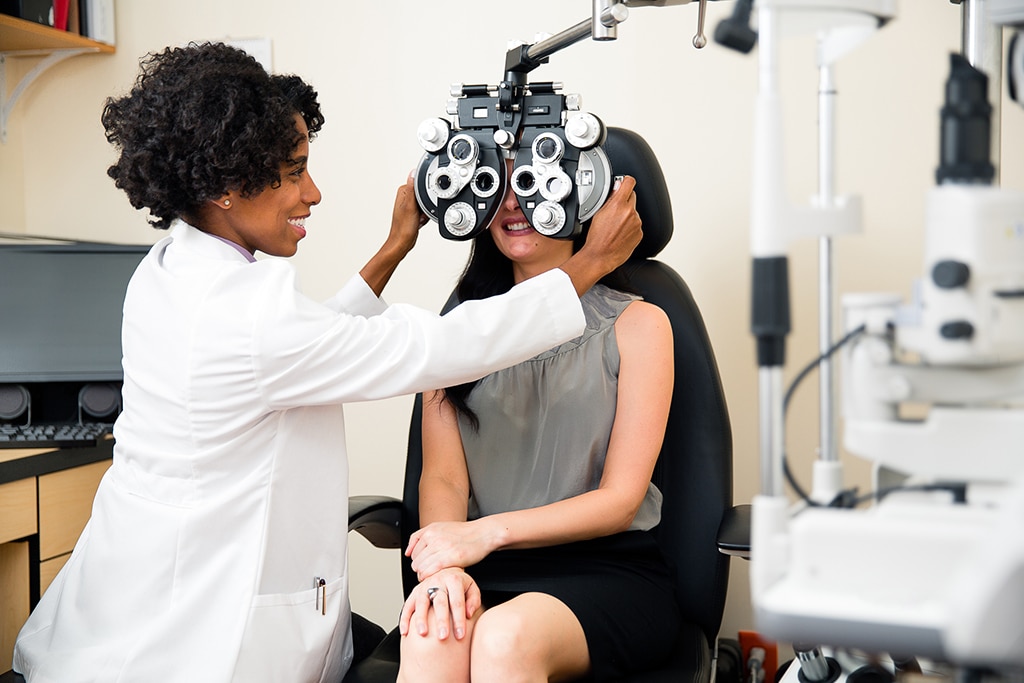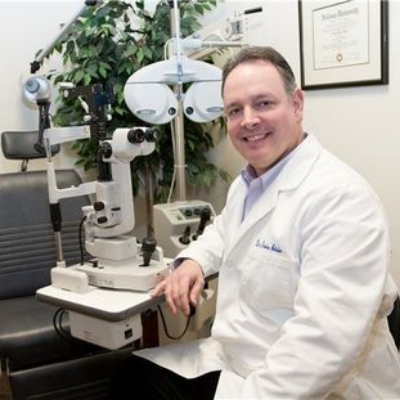Understanding the Comprehensive Role of an Optometrist in Modern Eye Treatment
With developments in modern technology and an increasing focus on preventive treatment, optometrists are indispensable in detecting and handling chronic eye conditions, while likewise involving in early disease discovery. How do these duties intersect with their function in promoting overall eye wellness, and what does this mean for client outcomes in a joint healthcare setting?
Expanded Extent of Method
In recent times, the function of eye doctors has developed substantially, with several professionals now accepting a broadened extent of practice that prolongs past traditional eye evaluations. This development shows the expanding acknowledgment of eye doctors as key doctor in the area of eye care. Their duties now include a large range of services, including suggesting medications for ocular problems, handling chronic eye illness, and performing minor surgeries. This shift has been driven by innovations in optometric education and learning, improved scientific training, and the boosting demand for detailed eye treatment solutions, specifically in underserved areas.
Further, eye doctors are now more involved in collective care, functioning carefully with ophthalmologists, health care medical professionals, and various other healthcare experts to make sure holistic client treatment. This interprofessional cooperation is crucial in taking care of complex cases that call for a multidisciplinary strategy. Furthermore, optometrists are playing a critical role in public health and wellness campaigns, such as vision screenings and eye health education and learning, targeted at boosting neighborhood health end results.
The broadened extent of technique for optometrists not only boosts their capacity to offer thorough care but additionally addresses the growing demand for reliable and easily accessible eye care services, adding to overall healthcare improvements.
Early Condition Detection
Early discovery of eye diseases is progressively coming to be a focal point in the broadened function of eye doctors. As key eye care service providers, eye doctors are uniquely positioned to recognize very early indicators of ocular problems such as glaucoma, macular degeneration, diabetic person retinopathy, and cataracts. This essential role is critical, as very early diagnosis can substantially improve the monitoring and diagnosis of these conditions, possibly preventing vision loss and improving client end results.
Optometrists use thorough eye assessments to detect refined adjustments in vision and eye health. These examinations typically consist of analyses of visual acuity, intraocular stress, and retinal health. The capacity to identify early indicators of systemic health and wellness issues, such as high blood pressure and diabetes, via eye signs additionally highlights the significance of regular eye exams. Early treatment is not only advantageous in maintaining vision but additionally in decreasing health care expenses linked with innovative condition treatments.
Furthermore, eye doctors play a crucial duty in person education and learning, highlighting the value of routine eye examinations as part of general health care. By cultivating a positive method to eye treatment, optometrists contribute substantially to public health, guaranteeing illness are captured and handled efficiently before they can progress.
Advanced Diagnostic Techniques
Advanced diagnostic strategies have actually changed the method of optometry, allowing professionals to find and keep track of ocular conditions with unprecedented precision. These innovations have changed the optometric landscape, allowing for extra innovative analysis and intervention approaches. Technologies such as optical comprehensibility tomography (OCT) supply high-resolution, cross-sectional pictures of the retina, promoting very early detection of conditions like glaucoma and macular deterioration. This non-invasive technique has actually come to be vital in modern optometry, providing detailed insights right into retinal layers.
An additional crucial improvement is electronic retinal imaging, which records extensive sights of the retina making use of high-def video cameras. This innovation is critical in determining changes in retinal structure in time, therefore helping in the administration of conditions like diabetic person retinopathy. Visual field screening, boosted by computer-aided systems, permits precise mapping of a patient's area of vision, important in diagnosing and tracking glaucoma progression.
Corneal topography, an additional noteworthy analysis tool, generates thorough maps of the cornea's surface area. This is specifically useful in suitable contact lenses and intending refractive surgical procedure. These advanced diagnostic strategies jointly make it possible for eye doctors to give article aggressive, targeted treatment, guaranteeing far better client end results and reinforcing their critical role in eye wellness administration.
Handling Chronic Eye Problems
Taking care of chronic eye conditions is a keystone of optometric care that needs a detailed understanding of different eye diseases and their long-lasting effects. Eye doctors play a pivotal duty in handling, diagnosing, and monitoring problems such as glaucoma, diabetic retinopathy, and age-related macular degeneration. These conditions, if left neglected, can lead to substantial visual impairment or blindness, highlighting the important value of recurring treatment and administration.
Optometrists utilize a variety of diagnostic devices, consisting of optical coherence tomography (OCT), visual area testing, and fundus photography, to analyze the progression of these chronic conditions. By closely monitoring modifications in ocular health, optometrists can change therapy strategies to minimize disease development. This might include suggesting drugs, recommending way of life adjustments, or coordinating with ophthalmologists for surgical interventions when essential.

Function in Preventive Care
Preventative care is an essential aspect of optometry that concentrates on maintaining eye health and preventing the start of eye diseases. Eye doctors play an important role in early detection and avoidance, using regular eye evaluations to recognize threat variables and subtle modifications in eye wellness. Optometrist Chino. These assessments are not just regarding vision Read Full Report improvement yet encompass an extensive assessment of eye features and frameworks, making it possible for the recognition of conditions such as glaucoma, cataracts, and macular degeneration at a very early stage
In enhancement to diagnostics, eye doctors enlighten people on lifestyle options that promote eye wellness, such as appropriate nourishment, UV security, and the importance of regular eye examinations. They recommend on the appropriate usage of electronic tools to avoid electronic eye stress, a growing problem in the electronic age. Eye doctors additionally supply assistance on protective glasses for job-related and leisure activities, reducing the risk of injury.
Preventative eye treatment includes systemic health issues that manifest in the eyes, such as diabetes and hypertension. By collaborating with various other medical care specialists, optometrists add to holistic client care, highlighting the interconnectedness of eye and systemic health and wellness. This aggressive strategy is important in protecting visual acuity and overall wellness.
Conclusion
Optometrists now occupy a critical role in contemporary eye treatment, defined by a broadened range that includes diagnosing and managing chronic eye problems, suggesting drugs, and executing small surgical procedures (Eye Doctor). Their experience in very early illness detection is enhanced by advanced analysis methods such as optical coherence tomography and digital retinal imaging. By stressing preventative treatment and client education, eye doctors add substantially to overall eye health, teaming up with other healthcare professionals to make certain detailed and efficient individual results

In enhancement to diagnostics, eye doctors inform patients on way of life options that promote eye wellness, such as proper nutrition, UV security, and the significance of regular eye exams.Preventive eye care expands to systemic wellness concerns that materialize in the eyes, such as diabetes and hypertension.Optometrists now occupy a pivotal role in contemporary eye treatment, identified by an increased scope that consists of identifying and handling persistent eye problems, recommending medications, and performing minor medical procedures.